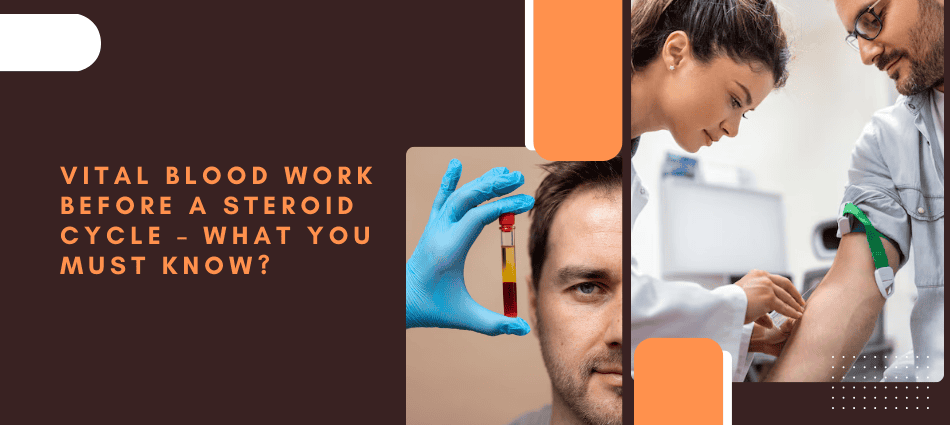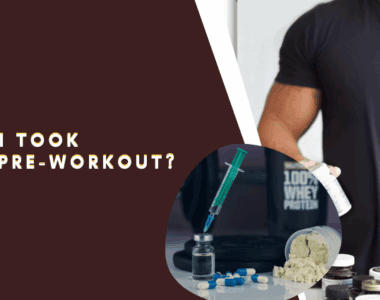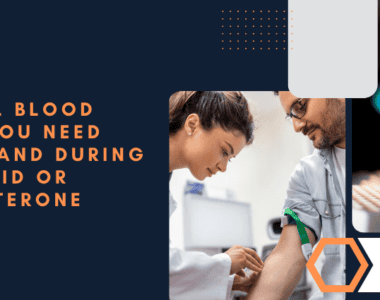Vital Blood Work Before a Steroid Cycle – What You Must Know?
Are you thinking about starting a steroid cycle? Before you do anything, stop and ask yourself: Do I know what my current health looks like on the inside? If the answer is no, you’re taking a huge risk. Using steroids without checking your blood work first is like playing Russian roulette with your health. You have no idea what could go wrong, and if something does go wrong, you won’t know how to fix it. That’s why this blood work is not optional, it’s vital.
Why Blood Work Matters Before a Cycle?
Before starting any steroid cycle, you must get your baseline blood levels. These values help you track changes during the cycle. If you don’t know what your hormone levels were before the cycle, how will you know what’s normal afterward? You won’t know if your testosterone, estrogen, or LH levels dropped too low or spiked too high. And if a problem happens—like fatigue, mood swings, or gyno—you won’t know what to adjust because you don’t have the facts.
Blood work gives you those facts. It helps you know what to take, how much to take, and what to avoid. It also helps you see which side effects are coming from which compound. Once you learn how your body reacts to certain steroids, you’ll be able to manage future cycles more safely and effectively.
Key Tests to Do Before Starting
Let’s go over the most important blood tests you need before a cycle.
1. Testosterone Levels
Some people don’t even check their testosterone before they start a cycle. That’s a huge mistake. You need to know where your natural test levels are. Testosterone can convert into DHT (a stronger androgen) or estradiol (a form of estrogen). If you don’t know how much testosterone you’re starting with, you won’t be able to track changes.
It’s also smart to add a DHT-based compound like Primobolan to manage estrogen conversion. This can help keep estrogen levels balanced without needing strong blockers.
2. Blood Sugar and Insulin Resistance
Check your serum insulin, fasting glucose, and HbA1c. If any of these are too high, your body may be insulin resistant. That means you’re not handling carbs well. A short diet may help fix that. Steroids can worsen insulin resistance, so this test is very important.
3. Kidney Function – Cystatin C
Steroids can hurt your kidneys, and once damaged, kidneys rarely recover. Don’t just rely on creatinine levels, they can be misleading in bodybuilders due to higher muscle mass. Cystatin C is a better option to check your kidney filtration rate. If you’re training hard and taking supplements, your kidneys are under pressure. A kidney support supplement might be helpful.
4. Blood Pressure – Use ARBs If Needed
Steroids can raise your blood pressure. Over time, this can lead to heart enlargement. A type of medication called ARB (angiotensin receptor blocker) can help protect the heart. In studies on rodents, adding ARBs while using steroids reduced heart damage. These drugs are safe and used in many medical cases. But don’t use them blindly. They can raise potassium levels in rare cases.
5. Cholesterol and Inflammation
Check your LDL, HDL, triglycerides, and CRP (C-reactive protein). CRP shows how much inflammation is in your body. If you smoke or vape, these numbers are usually worse. Many people use statins or other drugs to lower cholesterol, but you don’t always need that.
You can use Ezetimibe (lowers cholesterol in the gut) and red yeast rice (a natural statin) together in low doses. These two work in different ways and are often better together than using one in a high dose. Other helpful supplements include citrus bergamot, krill oil, and cardio exercise.
6. Prolactin Levels
High prolactin can cause low libido, erectile issues, and even gyno. Many guys think it’s estrogen and start taking anti-estrogens. That just makes things worse. Always test prolactin to know for sure.
7. Liver Enzymes and Oral Steroid Use
Even injectable steroids stress your liver. If you’re using oral steroids, the burden is even higher. Always check liver enzymes. You also need a Complete Blood Count (CBC) to check how steroids affect your red and white blood cells.
8. Estrogen Control – But Don’t Crash It
Estrogen balance is key. If estrogen is too high, you can get acne, water retention, high blood pressure, and mood swings. If it’s too low, you’ll feel tired, get dry joints, and lose your sex drive.
Using Aromatase Inhibitors (AIs) like Arimidex can lower estrogen, but they also stress your liver and can reduce other good hormones. That’s why you need to test estrogen before the cycle—and then test it monthly during the cycle. If your TRT clinic only checks it every 3–6 months, that’s a red flag.
9. Cortisol – Your Stress Dashboard
Cortisol is your main stress hormone. When it’s too high, it shows your body is under heavy pressure. Steroids act like a turbo boost, pushing your body harder. That means cortisol levels can skyrocket if you’re not careful. Checking cortisol helps you know how much strain your system is under.
10. LH and FSH – Natural Hormone Recovery
You also need to check LH (Luteinizing Hormone) and FSH (Follicle-Stimulating Hormone). These show how much natural testosterone your body makes. If you ever want to come off cycle and recover, you’ll need to know where you started.
Bonus: Other Tests to Consider
There are many other tests you can do depending on your budget and goals. These may include SHBG (Sex Hormone Binding Globulin), thyroid panels, electrolyte levels, and more. SHBG is so important that the speaker even made a separate video just about it.
Don’t Ignore Bad Results – Take Action
If your blood work comes back unhealthy, don’t just sit and stare at it. Take action. Find out what’s causing the problem and make smart, informed changes. Don’t guess. Use your data. If you act early, you can avoid serious damage later on.
Final Words
Steroids can give great results, but they can also destroy your health if you don’t know what you’re doing. Blood work is your safety net. It helps you stay in control and avoid side effects. It gives you the power to fix problems early. And most of all, it keeps your long-term health intact. If you need help understanding your blood work or planning your cycle the right way, reach out to a trusted expert. Your health isn’t something to gamble with. Do it smart. Do it safe.




